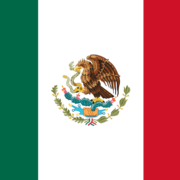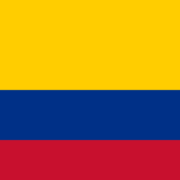Latin America
Cuba
Cuba, an island nation in the Caribbean, is known for its rich cultural heritage, vibrant music scene, and historic cities like Havana.
Latin America
Cuba, an island nation in the Caribbean, is known for its rich cultural heritage, vibrant music scene, and historic cities like Havana.
Population: 11.3 million
Main Religion: Christianity
Christians: 7 million (61.7%)
Cuba is a country of the West Indies, and the largest single island of the archipelago of the Caribbean region. The country comprises an archipelago of about 1,600 islands, islets, and cays. Cuba was claimed by Christopher Columbus for Spain in 1492 and was ruled by the latter until 1898, when the United States and Cuban forces drove them out in the Spanish-American War. Cuba soon gained formal independence, though it remained overshadowed by the nearby United States. On New Year’s Day, 1959, revolutionary forces led by Fidel Castro overthrew the government of dictator Fulgencio Batista. Two years later Castro proclaimed the Marxist-Leninist nature of the revolution. Cuba became economically isolated from its northern neighbour as it developed close links to the Soviet Union. The Soviet collapse in the early 1990s isolated Cuba still further, bringing immense hardship to people. Today it continues to suffer shortages food, transportation, electrical power, and other necessities, as per Brittanica
Cuba is a communist state ruled by President Miguel Diaz-Canel. Freedom House labelled it not free and scored it a 12 out of 100. Cuba’s one-party communist state outlaws political pluralism, bans independent media, suppresses dissent, and severely restricts basic civil liberties. The government continues to dominate the economy despite recent reforms that permit some private-sector activity. The regime’s undemocratic character has not changed despite the generational transition in political leadership that started in 2018 and included the introduction of a new constitution and the gradual passage of complementary new legislation.
Cuba is on USCIRF’s list of countries of particular concern. The report stated: “In 2023, religious freedom conditions in Cuba remained extremely poor. The government maintained an oppressive legal framework that severely restricted peaceful religious activity, regularly harassed religious leaders and worshipers, and continued to wrongfully imprison individuals for their peaceful religious activity. In May 2023, the Cuban government approved the Social Communication Law, which codifies broad prohibitions on peaceful expression, including religious expression that is critical of the government. Throughout 2023, the Office of Religious Affairs (ORA) continued to regulate and control religious institutions. The Law of Associations requires religious organizations to apply to the Ministry of Justice, where the ORA is housed, for registration. Membership or association with an unregistered religious group is a crime and, despite existing criteria, registration decisions are often arbitrary and discriminatory.
The government draws on its vast domestic security and surveillance apparatus to harass and intimidate religious leaders and worshipers, including through the Department of State Security, the National Revolutionary Police, and the Committees for the Defense of the Revolution.
Although there is official religious freedom, there are many legal obstacles that make it difficult for churches to operate without interference. In Cuba, anything deemed to be in competition with the Communist Party is quashed – and that includes Christianity. Church leaders and believers who speak out against human injustice or political corruption – or who dare to criticise the regime – risk harassment, smear campaigns and even imprisonment. Churches must be registered, but the process is fraught with difficulty. Those that are registered do so under extreme scrutiny, including infiltration by security agents.
Cuba has one of the most restrictive media environments in the world. The formal media sector is owned and controlled by the state, and the constitution prohibits privately owned media. The country’s independent press operates outside the law, its publications are considered “enemy propaganda,” and its journalists are routinely harassed, detained, interrogated, threatened, defamed in the official press, and prohibited from traveling abroad or re-entering the country.

 Colombia
Colombia